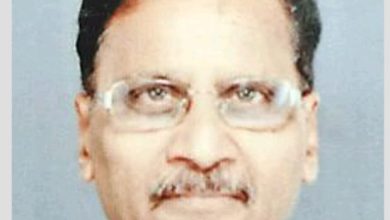LPG Price Cut
Benevolence or Political Calculus?

A s the political landscape anticipates significant state elections, the Union Government’s decision to reduce domestic cooking gas prices by Rs 200 per cylinder has sent ripples through both economic and electoral spheres. This move, offering a semblance of relief to households grappling with escalating LPG costs, inevitably raises the question of its underlying intent. While it is touted as a well-timed gesture, the nuances surrounding the decision hint at a delicate interplay between genuine empathy and strategic political maneuvering. Prime Minister Narendra Modi’s description of the price cut as a “gift to crores of my sisters of the country on the occasion of Raksha Bandhan” adds a layer of sentimentality. This language of upliftment and betterment resonates with the core ethos of governance, particularly in addressing the needs of economically vulnerable segments. However, when viewed against the backdrop of impending state elections, the decision assumes a more complex dimension.
The journey of LPG prices has been anything but consistent. Earlier this year, the cost of a cooking gas cylinder surged past the Rs 1,100 mark, marking a significant burden on household budgets. Throughout 2021, consistent upward revisions and frequent hikes underscored the financial challenges faced by families. This situation, coupled with competing promises from political rivals about easing these economic pressures, has elevated LPG pricing into a key issue impacting the daily lives of citizens. Yet, it is important to consider the timing and motive of the LPG price reduction.
As five states prepare for elections later this year, the move raises eyebrows about the convergence of economic policy with political calculations. The correlation between policy adjustments and electoral calendars is a familiar pattern in democracies worldwide, often sparking debates on whether such measures genuinely prioritize public welfare or are motivated by the pursuit of power. The essence of governance lies in balancing the immediate needs of citizens with the long-term vision for the nation’s progress. While a reduction in LPG prices is undoubtedly a relief for millions of households, it is crucial to assess whether such policy interventions are sporadic or part of a consistent effort to address economic challenges. The success of programs like the Pradhan Mantri Ujjwala Yojana, which has considerably increased LPG connections, can be compromised if economic policies are perceived as short-term strategies catering to election cycles.
This raises broader questions about the relationship between politics and economics. Can policies aimed at enhancing the wellbeing of citizens be kept separate from electoral strategies? The electorate deserves reassurance that their welfare remains a paramount concern regardless of political agendas. The current decision on LPG prices, while welcome, prompts a call for greater transparency and a commitment to enduring economic policies that uplift the lives of all citizens. As the nation’s democracy matures, citizens are becoming increasingly discerning about political moves that carry economic implications. The reduction in LPG prices is more than just a cut in costs; it is a reminder of the intricate dance between governance and politics. While a reduction in financial burdens is appreciated, citizens seek enduring solutions that transcend electoral timelines, truly resonating with the values of a nation aiming for holistic progress.






